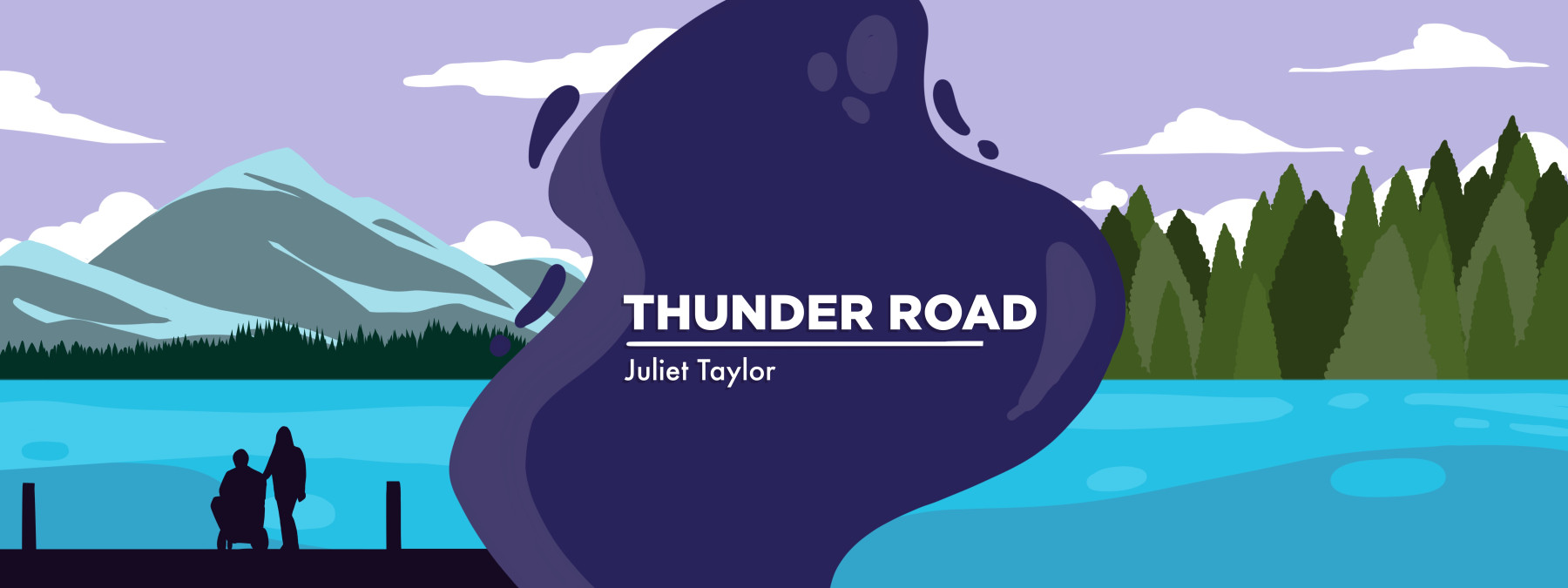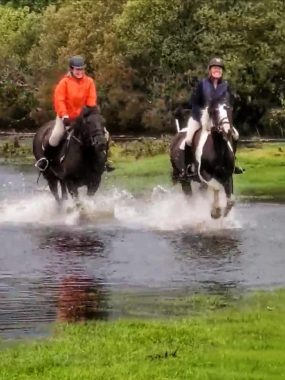How Fear Can Show Us What’s Important
ALS ushered in a new kind of fear for this columnist and her late husband

A few weeks ago, I had a long conversation with a stranger I met while traveling. She was a bold and smart young woman who shared tales of her solo trips as we flew. She insightfully concluded that travel had made her more resilient, aware, and resourceful.
I agreed. Growing up, I spent several years living in Germany, developing a love of travel and a level of comfort being on my own. Those experiences helped transform me from a timid, self-conscious kid into one who’d learned to trust her own instincts and talents. Other things can provide this same confidence, such as athletics, service, and advocacy.
As we continued talking, my new friend revealed that she’d gotten a tattoo to commemorate her adventures and share her philosophy on life. Her tattoo was simply the word “fearless.”
I smiled on hearing this. It was just the tattoo I might have chosen a few short years ago. At the time, I too believed myself fearless, proud of doing what I saw as scary things: skydiving, taking a flying lesson, zip lining 700 feet above the forest floor in Costa Rica. I equated physical risk and seeking adrenaline with bravery, and compared frightening myself to personal growth.

Juliet, right, and a friend ride horses in Ireland in 2019. (Courtesy of Juliet Taylor)
I am no longer fearless.
A different kind of fear
When my late husband, Jeff, was diagnosed with ALS in 2018, I got a crash course on fear in a way that was incomprehensible to pre-ALS me. Previously, I’d understood fear to be a fleeting response to a scary event, something to be managed, overcome, and conquered, subsequently filling me with pride.
The type of fear that arrived when Jeff was diagnosed, then as we lived with his disease for 19 months, and for me now as his surviving partner is altogether a different emotion. This new fear — of the loss of people I love, of human suffering, of the seeming randomness of life — has no quick fix, nor should it.
There was no response other than fear when Jeff’s neurologist said, simply and without fanfare, “You have ALS.” I thought somehow this discussion, which we knew was coming, would be more momentous. Instead, it was simply three words delivered in a windowless, unremarkable room, with me knowing as it happened that this was the scariest moment of my life. I walked out of that exam room a different person from who I was when I walked in.
There was nothing but fear when Jeff fell in our gravel driveway and I had to make our first 911 call, knowing that I couldn’t lift his 260-pound, once-strong body and realizing for the first time that I couldn’t provide something he needed, and we couldn’t outsmart or outrun ALS.
I know today that fear, while uncomfortable, is valuable because it shows us what’s important in our lives so we may seek to protect it. We can try to fight fear with knowledge, faith, preparedness, or all three. But there’s no shame in recognizing and experiencing an emotion that highlights our priorities and reminds us that maybe we can’t do this alone, and that vulnerability is a part of being human.
For Jeff and me, the most powerful things that stood up to fear were speaking its name and going through it together. On one occasion, in a particularly frightening medical situation, I asked Jeff if he was scared, and he nodded. We were holding hands; I told him I was scared, too. When we locked eyes and smiled — he could no longer speak — fear lost its power over us in that moment.
Today, I embrace no longer being fearless. I am still, I hope, the confident and joyful person I aspire to be. I’m still up for an adrenaline-inducing adventure, and it’s still exhilarating to do so. But I don’t take unnecessary risks.
I like to think now that fear is an indicator of how much, and whom, I value in my life, and how much I have to lose. Fear reminds me that I love deeply, and I hope fervently. Fear requires giving up the illusion of control over life in the face of those things. The only solution I’ve discovered is to recognize it, name it, and then live and love fully in the face of it.
Note: ALS News Today is strictly a news and information website about the disease. It does not provide medical advice, diagnosis, or treatment. This content is not intended to be a substitute for professional medical advice, diagnosis, or treatment. Always seek the advice of your physician or other qualified health provider with any questions you may have regarding a medical condition. Never disregard professional medical advice or delay in seeking it because of something you have read on this website. The opinions expressed in this column are not those of ALS News Today or its parent company, Bionews, and are intended to spark discussion about issues pertaining to ALS.








Susan Keldani
I can relate to this. Prior to getting the same diagnosis, in the same matter of fact way, with no empathy, I had been the person who could conquer anything, any situation and would always prevail in the name of good. From business to parenting to vacation planning, my skills and outcomes were always the best and were successful. I would put in the hard work and would be blessed with a great outcome. This is the first time that I can't win, no matter what I do, I'm going to come out a loser.